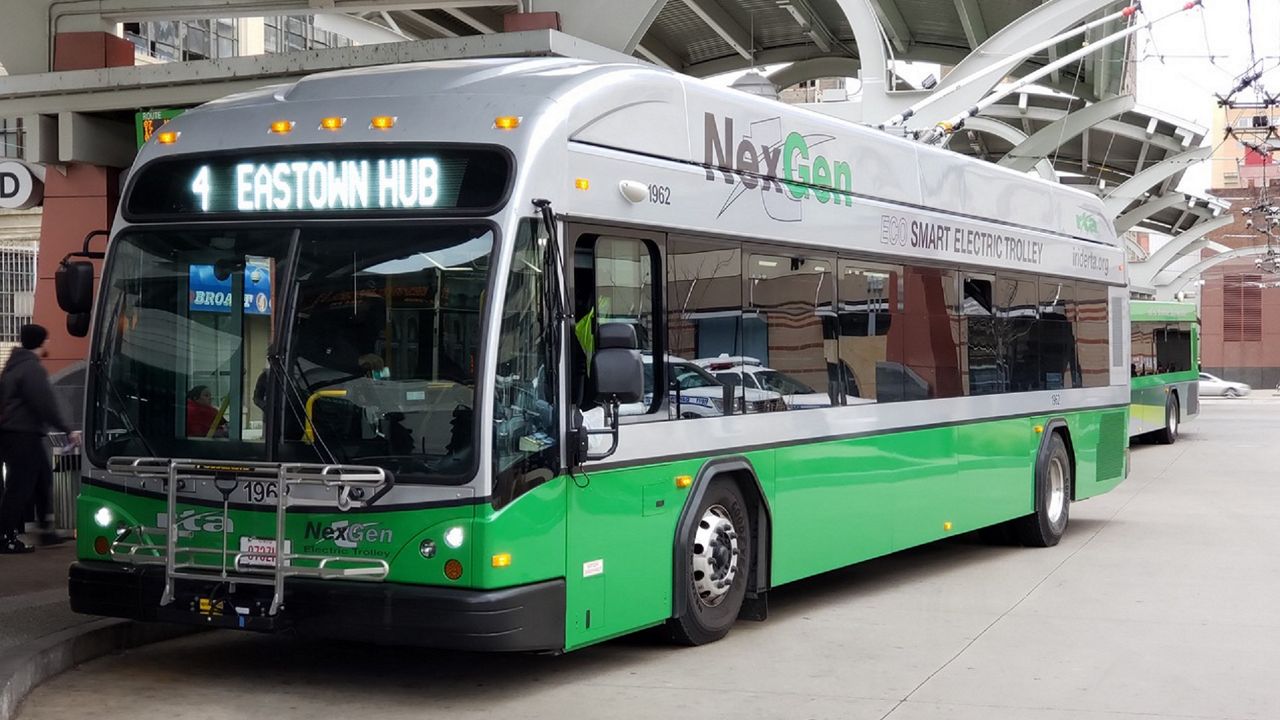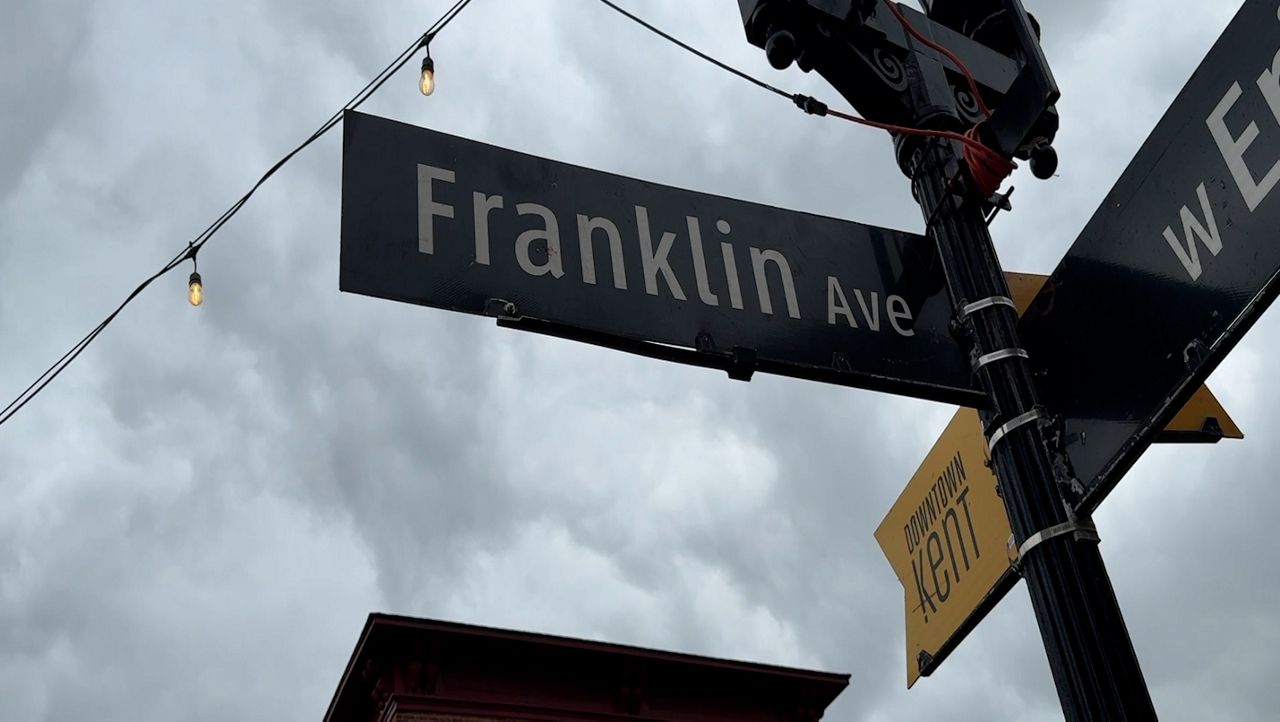BEREA, Ohio — Some sociology students at one Ohio campus are spending a short time in a wheelchair to gain a lifelong understanding of the challenges those with disabilities can face.
For nearly eight years, Baldwin Wallace University graduate Melanie Greenberg returns to campus each semester to share some insight into her everyday experience of using a wheelchair with Assistant Sociology Professor Betsy Ross’s classes.
“It’s kind of just all I’ve ever known,” she said. “It’s definitely hard and challenging and puts a lot of wrenches into a lot of things that you want to do. But, you know, it is part of life.”
Melanie was diagnosed with transverse myelitis after a virus left her paralyzed at 8-months-old.
“When the virus goes away, it leaves lesions on the sheathing of the spine, and that blocks the flow of messages from the brain to the lower body,” said her dad, Don Greenberg. He monitored Melanie’s service dog, Emmy, while Melanie guided a group of students to see a campus building in a new light.
“To this day, she does amazing things that you wouldn’t think possible,” Don Greenberg said. “It’s when you realize that I can either have a pity party or I can live my life to the extent that I can.”
He hopes it prompts more people to offer a hand to someone in need.
“Just a little bit of help,” he said. “They survive all day long, but they can have a little bit better life with just a little bit of help.”
“It’s a little arm workout,” said Selena Nakhleh, while working to move a kid-size wheelchair on loan from the nonprofit Youth Challenge Sports forward. It was her first time to give one a spin.
“It can get a little too close to the side of the sidewalk and it’s hard to get back on track,” she said.
“Your peripheral vision has to be pretty good, cause if you go to one side or go to another, you’re going to go into the grass,” Melanie Greenberg said.
Melanie Greenberg showed students Nakhleh, Stella Dajko and Dominick Vasko some common pain points in her daily life, including elevator doors that close too quickly, narrow door frames that require wheels be removed from the chair, and soap or sinks placed out of reach in restrooms.
Vasko called it an eye-opening experience.
“We take a lot of things for granted being able-bodied,” he said.











